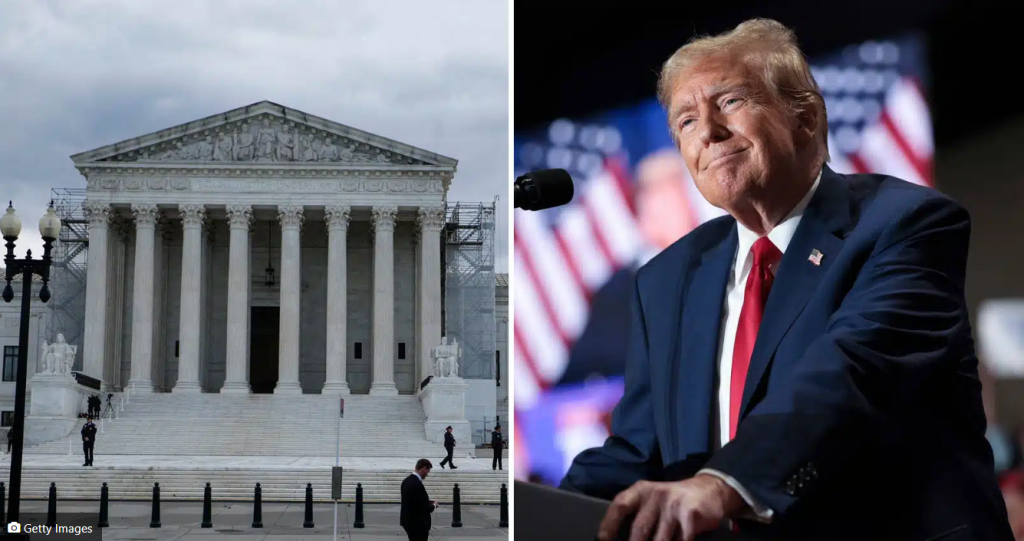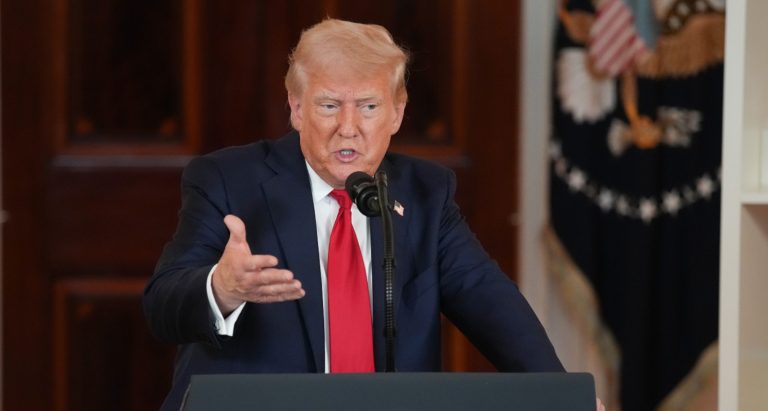
The Justice Department asked a federal appeals court to lift a judge’s temporary block on President Donald Trump’s use of a broad wartime power to quickly deport people who are thought to be part of a Venezuelan gang.
The almost-hour-long hearing before the US DC Circuit Court of Appeals was the latest round in a nasty fight between the administration and the people who were targeted by a proclamation Trump signed earlier this month that used the Alien Enemies Act to quickly remove them from the US.
The three judges who are looking at the Trump administration’s request to delay two lower court orders aren’t sure what they will decide or when they will decide.
Two members of the panel—one liberal and one conservative—asked lawyers for both sides a lot of questions about important parts of the case. For example, they wanted to know if the people affected by Trump’s proclamation were missing any due process rights that would have given them a chance to defend themselves against claims that they are members of the Venezuelan gang Tren de Aragua and where the right place is to make such complaints.
One of the judges, Judge Karen Henderson, was chosen by former President George H.W. Bush and did not ask any questions during the proceedings.
CNN’s panel discussed the case, which led to one legal analyst arguing that if this case reached the U.S. Supreme Court — it could be “game over” for Democrats.
Xochitl Hinojosa, a former DOJ director of Public Affairs, said, “This has been an unprecedented case from the beginning. The reality is, is that what the D.C. circuit is ruling on is a very technical matter. They‘re not ruling on the Alien Enemies Act. They‘re actually ruling when it comes to a fight between judge boasberg and the Department of Justice. Justice, the Department of Justice and the administration, they used a statute from the 18th century.”
“And essentially the judge said, hold on, wait a minute, issued a tro and said, I need some more information on this. This hasn‘t been used in a long time. I would like some more information. The Justice Department stonewalled and instead they ended up filing this appeal that is now at the D.C. Circuit. So it is very process-oriented. I would say, as a general matter, no, I don‘t think the Justice Department would be successful. But given how everything in this matter has been unprecedented, from the calling to impeach the judge to everyone from their Department of Justice leadership, signing on to these filings, which never happens, it‘s clear that there is a lot of politics being played here, and it‘s unclear where that last judge is going to rule,” she added.
“And it really could all come down to that then. Then of course, mark, depending on how that goes, if Trump wins, then that‘s a victory in this one specific sense, right. Not not overall. But I mean is his bet. Mark is his hope that this eventually all goes to the Supreme Court, right?” host Erin Burnett asked.
“That‘s where they want it to end up. The Trump administration wants to have more power and more ability to conduct deportations with a minimal amount of judicial oversight. And that’s where it is,” said Marc Caputo, a senior reporter at Axios.
“The Trump administration believes that the law is on their side and the court‘s composition ultimately at the Supreme Court is also on their side. That is, the number of Republicans appointed Justices outnumber that of Democrats. And to them, those two factors are essentially the ballgame,” Caputo added.




